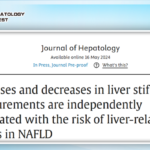
Editor's Note: The 2024 American Society of Clinical Oncology (ASCO) Annual Meeting was held in Chicago from May 31 to June 4. Multiple research advancements in urologic oncology were presented, including the SWOG S1600 study results shared by Dr. Jill Hamilton-Reeves. This study explored the impact of immune-enhancing nutrition on the outcomes of radical cystectomy. Oncology Frontier has compiled and summarized the relevant content for our readers.Study Overview
Abstract Number (Presentation Type): 4501 (Oral Abstract Session)
Effects of immune-enhancing nutrition on radical cystectomy outcomes: Primary results from the randomized phase III double-blind clinical trial (S1600).
Background
SWOG S1600 is a randomized, double-blind, phase III trial comparing the effects of specialized immune nutrition (SIM) versus oral nutritional supplements (ONS) on complications following radical cystectomy (RC). SIM-enhanced nutrition includes L-arginine, ω-3 fatty acids, dietary nucleotides, among others.
Methods
Bladder cancer patients scheduled for RC were randomized (1:1) to the SIM group or the ONS group. The primary endpoint was the incidence of postoperative complications of grade I or higher at day 30 post-RC, assessed using the Clavien-Dindo (CD) complication grading system. Multivariable logistic regression was used to analyze the data, adjusting for stratification factors: diversion type (neobladder vs. ileal conduit), prior neoadjuvant chemotherapy (any vs. none), and baseline nutritional status (well-nourished vs. moderately malnourished). Other outcomes included 90-day complications and high-grade complications (CD≥III). Progression-free survival (PFS) and overall survival (OS) were evaluated over 2 years; differences between groups were reported using the log-rank test.
Results
A total of 203 patients were screened (99 in the SIM group, 104 in the ONS group), with a median age of 68.8 years, 20% female, and 5% Black. Five patients were ineligible (1 in SIM, 4 in ONS) but included in the ITT analysis. Seventeen patients withdrew consent before the 30-day evaluation, and 8 were not assessed, leaving 178 evaluable patients at 30 days (90 in SIM, 88 in ONS).
The proportions of patients with CD≥1 complications at 30 days were 62.2% in the SIM group and 58.0% in the ONS group; multivariable regression analysis revealed no difference between the groups (OR=1.18, 95% CI 0.64-2.18, one-sided P=0.71). There were no differences in high-grade complications at 30 days, nor in any or high-grade complications at 90 days or overall.
Currently, among all 203 patients, 17 in the SIM group and 26 in the ONS group experienced progression or death, with 2-year PFS estimates of 77.2% and 68.3%, respectively (one-sided P=0.16). Deaths occurred in 9 SIM group patients and 17 ONS group patients, with 2-year OS estimates of 87.4% and 78.2%, respectively (one-sided P=0.07).
Conclusion
For bladder cancer patients undergoing RC, neither type of nutritional supplement influenced the incidence of any grade of CD complications. Although fewer patients in the SIM group experienced progression or death, these differences were not statistically significant; follow-up will continue for 3 years post-enrollment. Future research should investigate the interaction between diet and cancers sensitive to immunomodulation.


